Clear and present danger signals
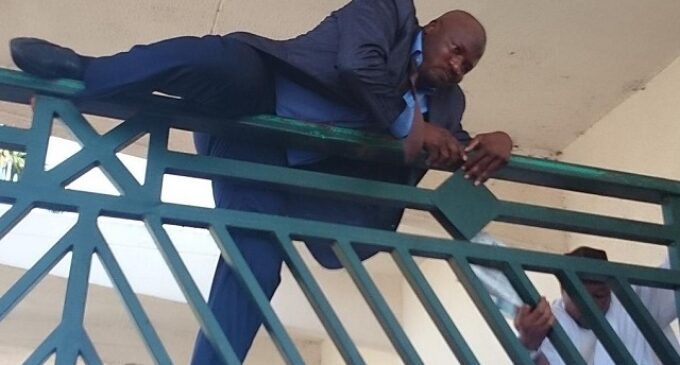
It is no longer news that Nigeria is in an increasingly bitter war that continues to produce a growing list of casualties killed, displaced, abducted or raped and of communities overrun by murderous insurgents. What is surprising is the readiness of the political class, particularly from both leading parties, to squander the country and its people.
Recent events predict a very difficult road ahead. Katsina State Governor, Ibrahim Shema, has recently been caught on camera describing political opponents as “cockroaches” and inviting his supporters to “crush” or “kill” them. Rivers State Governor, Rotimi Amaechi, recently led a blockade of the headquarters of the Nigeria Police Force and announced that his party would only accept an election in which they are declared winners.
On the day that the Federal Government, presented its request to the National Assembly for an extension of the emergency in three states of north-east Nigeria, the Police blockaded Parliament, ostensibly to preclude access to the premises for the Speaker of the House of Representatives who has defected from the ruling party. Despite the fact that the legality of the Speaker’s position is presently the subject of litigation, the Police, an entity controlled by the federal government, resorted to self-help in an effort to assert its own version of what the law is. That was egregious over-reach on live television.
Each of these in ordinary times would be serious cause for concern. For a country at war, these add up to acts of gross irresponsibility. They show a ruling elite unwilling or unable to realize how high the stakes are for the country. Just in case the seriousness of our situation is lost on anyone, it is necessary to re-state them.
Nigeria confronts a perfect storm of troubles on many fronts: national security, economic, demographic, and political. All these are on the cusp of eliding into one big crisis of national co-existence. The 2015 elections could just be a perfect tipping point if the two leading parties continue on their present course.
Boko Haram is widely seen as Nigeria’s national security problem. In reality, it is only part of our exposure to a growing possibility of generalized violence. In the north-east, Nigeria’s armed forces are engaged in mortal combat with murderous, expansionist, sectarian extremists. To the south of those frontlines, competing identity and livelihood claims and climate change define another frontier of inter-communal and ethnic strife in north-central Nigeria. Further south in the Niger Delta, a military-led Joint Task Force marked the 20th anniversary of its deployment this year. In its 2013 report, the Presidential Committee on Dialogue and Conflict Resolution of Security Challenges in the North led by Special Duties Minister, Kabiru Turaki, laid out starkly the footprint of the extent to which the claim of the Nigerian State to a monopoly of legitimate violence is challenged. It’s nation-wide.
On the economic front, the price of crude oil, the principal financier of Nigeria’s appropriations, has fallen by over 35% during the course of this year. At the current price of $72 per barrel, it sells at five dollars below the index price of $77 on which the 2014 budget was based. Claims by state governments that they are owed arrears of federal allocations can no longer be dismissed as crude politics. The current Medium Term Expenditure Framework (MTEF) proposes to finance these revenue shortfalls by a 50% reduction in subsidies on gasoline and kerosene. The ripple effects of such hikes on transportation and food prices would be brutal. The political capital required to deliver on such deeply inconvenient policies does not exist at the moment.
On the demographic front, the country does not have a plan for its youth bulge. If it does, it’s well hidden. Over 10.5 million young people are estimated to be out of school and many more are out of work. This population is exposed to abuse, substance dependency, radicalisation, recruitment into political crime, and extra-judicial killings. For the educated youth population, crippling youth unemployment feeds nihilism and different forms of both retail and organised crime. These are the expendable foot soldiers of political violence.
These provide the backdrop to the general elections scheduled for St. Valentine’s Day 2015 and against which possible scenarios can be predicted. With the economic picture, industrial unrest is foreseeable. With security agencies stretched on too many fronts, their credibility is frayed. Securing the 2015 elections will be difficult.
The infrastructure for organizing elections has been depleted in the north-east, with many cities under adverse claims from extremists, thousands of schools destroyed, many more teachers (who work as election administrators) killed or displaced, and many Youth Corpers unwilling to accept deployment to those states. It’s clear that there will be no voting in many parts of north-east Nigeria.
If election returns are close with the possibility that the parts of the country that don’t vote could make a difference to the outcome, we could end up with political and constitutional paralysis. If the insurgency were to make any more territorial gains, we could witness a cross-over between the frontlines of the inter-communal conflict in north-central and the extremist violence in the north-east, leading to more generalized violence. If we fail to manage the 2015 elections properly, all three conflicts could become one nation-wide theatre.
In response to this sobering situation, our politicians offer double-down or worse. Both leading parties choose to treat the country to a campaign of name calling, narrowness, hate-mongering, and mutually-assured destruction, with both sides asserting claims to rule in spite of the expressed wishes of the people, not because of it. They have also both clearly shown a frightening disregard for the role of the election administrator and appear from their conduct to suggest that the only one that matters is a compromised Independent National Electoral Commission (INEC).
What the country urgently needs is course correction in which both leading parties present plans for and genuinely show how to avoid this storm. Time is short. To achieve this, we cannot rely on their good sense. Nigeria is too important to be abandoned to politicians alone. We, therefore need a new civic coalition prepared, if necessary, to bypass the two leading political parties in a project in which all involved must be willing to forgo narrow personal, sectional, or electoral gains. The question in 2015 will be not whether we are willing to vote for any party or candidate, no matter how significant. The issue will be how many of us are willing to vote Nigeria.


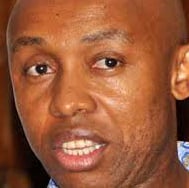



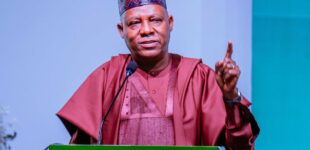
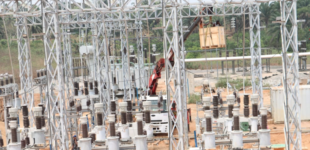
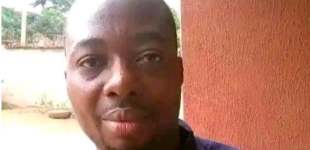
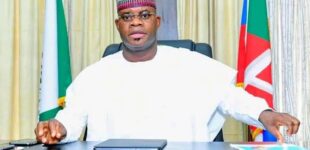
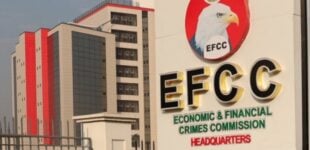
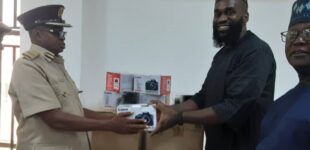
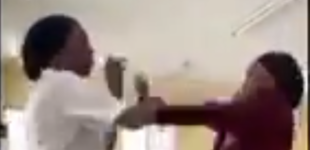

When we’ve defied all political, and social remedies. All we can do is pray and hope
When Nigeria has defied political and social remedies all we can do is pray and hope
Unfortunately this reasoning never occurred to these politicians but their single selfish heart only yearns for political gains in a do or die manner, to wit the unguided statement the so called “senior persons” made. Are they reading this message, there is truly terrible danger unseen.
I only pray these desperate power hungry zealots read this write up.
Military could, Please. Let the Boys come out and give the buhari/idiagbon treatment. Apc and Pdp leaders should be givenw minimum of 50years imprisonment including Jonathan and his wife. Blood has to flow for naija to have peace.
The earlier these conflicts within the political elites are resolved the better for the country and citizens. We can not continue to live invperfetual fear of what befall us the next minute.
@Yinka Ola: It will be absurd for anyone to talk of bringing the military back to governance.If they were that good,why were we yearning for democracy after 13 years of military rule ? And that reference to the most despotic of the military era,making of retrospective laws,kangaroo courts jailing people for 150 years only ridiculed the judicial system. I think the first step in the way forward is to effectively insulate the police system from politics to check abuse by the ruling party.